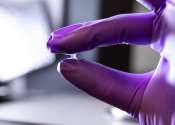Artificial mucus identifies link to tumor formation
During cold and flu season, excess mucus is a common, unpleasant symptom of illness, but the slippery substance is essential to human health. To better understand its many roles, researchers synthesized the major component ...









